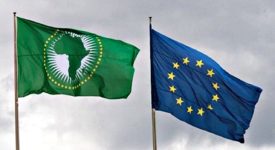The European Union reiterated on Monday (30 November) that it remained committed to work for the peace in the Middle East despite the fact that Israel suspended it from the diplomatic process following the controversial decision to label products imported from Jewish settlements. Israel’s Prime Minister Benjamin Netanyahu announced that his cabinet “ordered suspension of diplomatic contacts with the institutions of the European Union and its representatives on this issue.” The ban would allegedly be valid for the duration of a reassessment of the EU’s role in peace talks, though business and trade with the 28 Member States will run as usual.
EU foreign policy chief, Federica Mogherini, discussed the labeling affair with Mr Netanyahu yesterday on the sidelines of the UN climate summit in Paris. European Commission foreign affairs spokesperson, Maja Kocijancic, commented that “when it comes to the Middle East peace process, the EU continues and will continue to work on this in the quartet… with our partners”, adding that “peace in the Middle East is of interest to all”. Ms Kocijancic reaffirmed that “EU-Israeli relations are good, broad and deep and this will continue”.
The EU is a member of the so-called Quartet on the Middle East, a foursome of nations and international and supranational entities involved in mediating the peace process in the Israeli-Palestinian conflict. The initiative to set up the Quartet evolved following the outbreak of the Second Intifada in September 2000 and the fruitless cease-fire attempts that ensued. The most recent attempt at peace in the region was supposed to be the result of the US-backed peace talks between the Palestinians and Israel, which, however, collapsed in April 2014 after nine months of futile discussions and mutual blame.







